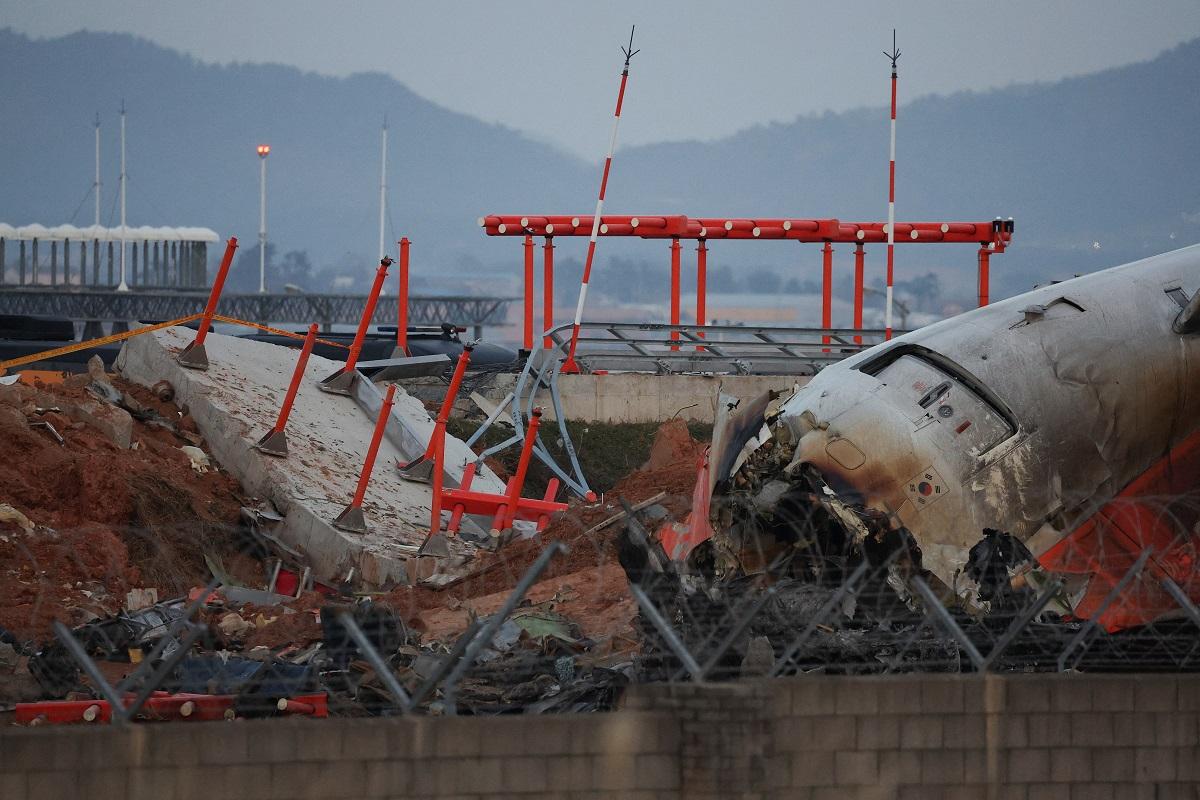On December 29, a Jeju Air jet crashed at Muan airport in South Korea, causing the worst air disaster in the country, killing 179 people. Investigators revealed that the jet’s flight data and cockpit voice recorders, known as “black boxes,” stopped recording about four minutes before the crash. The black boxes are critical in understanding what went wrong during the flight, and authorities are now looking into why the recording stopped at such a crucial moment.
The voice recorder was first analyzed in South Korea, but when it was found to be missing important data, it was sent to a special laboratory in the United States run by the National Transportation Safety Board (NTSB) for further examination. The flight data recorder, which holds information on the jet’s movements, was also sent to the US for detailed analysis to figure out why it stopped recording.
The flight, which was coming from Bangkok, Thailand, was heading to Muan airport in the southwestern part of South Korea. Just minutes before the crash, the pilots reported a bird strike and declared an emergency. Unfortunately, the plane landed on its belly and went off the runway, hitting an embankment and exploding in flames. Two crew members who were sitting in the tail section of the plane were injured but rescued after the crash.
The investigators are working hard to figure out what caused the black boxes to stop recording and what led to the crash.

















